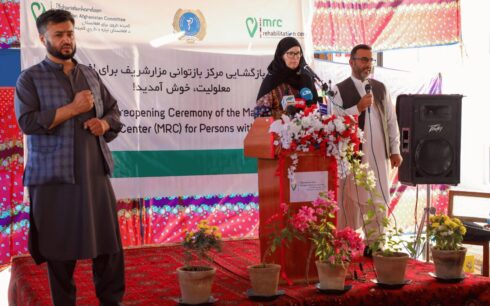The United Nations is working to unlock critical climate financing for Afghanistan, a country highly vulnerable to climate change but excluded from new funding since the Taliban’s return to power in 2021, Reuters reported on Wednesday, quoting two U.N. officials.
Afghanistan, plagued by droughts and deadly floods, has faced political and procedural hurdles preventing access to U.N. climate funds. However, U.N. agencies are now pushing to secure project financing aimed at boosting the country’s climate resilience. If successful, it would mark the first influx of international climate funds into Afghanistan in three years.
“There are no climate skeptics in Afghanistan,” said Dick Trenchard, country director for the U.N. Food and Agriculture Organization (FAO). “You see the impact of climate change and its environmental effects everywhere you go.”
Afghanistan’s arid and mountainous terrain is particularly susceptible to the effects of climate change, making the need for climate financing urgent.
New proposals underway
Two U.N. agencies are drafting proposals they hope to submit in 2024, aiming to access nearly $19 million from the Global Environment Facility (GEF), a financial mechanism under the 2015 Paris Agreement on climate change.
The FAO plans to seek $10 million to improve rangeland, forest, and watershed management across up to four provinces while ensuring no funds go directly to Taliban authorities.
Similarly, the U.N. Development Programme (UNDP) aims to secure $8.9 million to bolster the resilience of rural communities affected by erratic weather patterns. If successful, the UNDP intends to follow up with a request for an additional $20 million.
Bypassing the Taliban
Given the lack of international recognition of the Taliban government, U.N. agencies are navigating complex arrangements to ensure funding bypasses the Taliban authorities, Reuters reported.
“We’re in conversations with the GEF, the Green Climate Fund, the Adaptation Fund—major climate financing bodies—to reopen the pipeline and get resources into the country, again, bypassing the de facto authorities,” said Stephen Rodriques, UNDP’s resident representative for Afghanistan, as quoted by Reuters.
Typically, national governments collaborate with accredited agencies to implement U.N.-funded climate projects. However, in Afghanistan, U.N. agencies will both apply for and execute the projects directly, ensuring compliance with international restrictions on Taliban engagement.
The Taliban have not commented on the U.N.’s efforts to unlock climate financing, according to Reuters.
This move underscores the U.N.’s determination to address Afghanistan’s escalating climate challenges, even as the political and logistical complexities of operating under Taliban rule persist.





